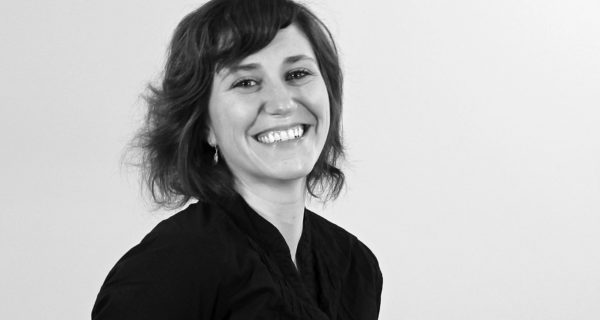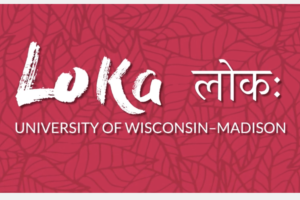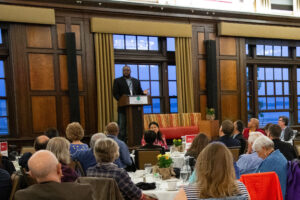
By Marianne Spoon, Communications & Marketing Director, Center for Healthy Minds
Over the past year, we asked our community to share how things were going and how we can improve offering the latest science and updates of value. We pored over your insights and feedback, feeling inspired and in awe of the impactful work many of you are leading in your communities, workplaces and personal lives.
We’re grateful for your participation and are fortunate to be connected with people like you.
As we reviewed the results of the survey, some trends emerged. We learned where we were doing well as well as where we were falling short and could improve. We thought it would be helpful to address some common questions and misconceptions we face as an organization as well as areas we’re hoping to improve moving forward.
What does the Center for Healthy Minds actually do?
The Center for Healthy Minds is a research organization and is part of the University of Wisconsin–Madison in the United States. What sets us apart from other organizations that focus on well-being is our commitment to rigorous scientific research, much of which is rooted in neuroscience and comes down to one basic question: What constitutes a healthy mind?
To begin to answer this, we’ve investigated the science of emotions as well as the wisdom and impact of contemplative practices to piece together the qualities of a "healthy mind," including attention, resilience, equanimity, savoring positive emotions, kindness, compassion, gratitude, empathy and having a purpose in life.
Science is our unique contribution to promoting human flourishing and cultures of well-being. This includes “basic” research that asks fundamental questions about how the mind and body work that serves as the foundation for clinical and applied discoveries to come. We also conduct “applied” research outside of the laboratory in real-life contexts such as schools, police departments and worksites.
Though we have a large network of collaborators, we have one location in Madison, Wisconsin, where we are based alongside Healthy Minds Innovations, Inc., (HMI) an external nonprofit with the same mission of the Center for Healthy Minds. HMI takes the Center's research findings and transforms them into tools and services to improve well-being in the world.
Healthy Minds Innovations derives tools from Center for Healthy Minds science, most notably the Healthy Minds Program app, which is free to download. You can find a list of all their tools, programs and event offerings on their website.
What does the Center for Healthy Minds not do?
Though we partner with Healthy Minds Innovations to host virtual meditations every so often, in general, the more intensive mindfulness trainings we offer are part of research studies or program assessments – you can learn more about any studies open for enrollment on our website. As interest in learning mindfulness techniques and skills continues to grow, so do the number of quality programs that offer mindfulness training and experiences.
In addition, we get a lot of questions about why we don’t roll out more programs or do outreach in schools (we wish we could!). Programs are a growing area in our Center. You can learn more about our efforts for higher education and faith leaders on our website.
We do try to partner with like-minded organizations to get our research out into the world. One example that we’re especially proud of is our mindfulness-based Kindness Curriculum for preschoolers that was originally developed in a research study.
We’ve been fortunate to work with Wisconsin Public Television, Mindful Schools and Pure Edge to share the curriculum widely for free in English and Spanish.
Does the Center only study mindfulness and meditation?
The short answer is no. A significant amount of our work does not focus on mindfulness or meditation. At the core of the Center’s research is learning how to cultivate emotional well-being and relieve suffering. Although we are known for our work exploring mindfulness-based approaches with long-term meditators, veterans, and teachers, much of our work focuses on the inner workings of the mind and the roots of emotion.
For instance, we recently launched a study that looks at the emotional underpinnings of Alzheimer’s Disease while another explores how the brain develops in the first two years of life.
Are there ways to volunteer with the Center?
We’re grateful that our mission resonates with people who want to get involved with the Center by giving us one of their most precious resources – their time. Because of our focus on research, we unfortunately don’t have dedicated staff to coordinate ongoing volunteers or tours at the Center.
If you’re interested, you can participate in a study to potentially contribute to the research in the future.
We also appreciate your help getting the word out to your friends, families and communities about the importance of emotional well-being and the latest research from our Center and others in the field. Forwarding our emails or sharing on your social media goes a long way to spreading awareness and our collective vision of a kinder, wiser, more compassionate world. We hope to continue offering tips and practices that are easily shareable. You can find a full list of our social media channels on our website.
At the core of the Center’s research is learning how to cultivate emotional well-being and relieve suffering. Although we are known for our work exploring mindfulness-based approaches with long-term meditators, veterans, police officers, and teachers, much of our work focuses on the inner workings of the mind and the roots of emotion.
Why does the Center need donations?
More than 50 percent of our funding comes from the generosity of our global community and people like you. We have some large, longitudinal studies that are supported by federal funding, but this funding only covers a portion of the research costs. As funding streams shrink dramatically over time, we rely on like-minded people to keep our research going.
High-quality research is costly and also takes time. For instance, running one participant in a study that includes MRI scans can cost up to $800 per person per session. In many studies, we run tens to hundreds of participants multiple times over the study period.
We also use donor funds to pay salaries and support our scientists so they can pilot new and novel ideas and collaborate with colleagues all over the world.
Some folks abroad have had some challenges making a gift to the Center. If you are experiencing issues giving, please contact the Wisconsin Foundation and Alumni Association at +1 (800) 443-6162. You can always contact our Director of Donor Engagement, Lorri Houston, if you have questions, too.
If you are unable to give online or you would prefer to mail a check, you can make a check payable to the “University of Wisconsin Foundation.” Then complete this form, print and mail it with your check to:
University of Wisconsin Foundation
US Bank Lockbox, Box 78807
Milwaukee, WI 53278-0236
Where do gifts to the Center go?
We have different types of gifts, such as endowments that support faculty and those to our General Fund. Our General Fund supports our day-to-day operations as well as our scientists and research support staff who keep our work moving forward. We’ve been fortunate to receive major gifts (endowments) that are designated to support faculty positions for several years or in perpetuity. These gifts are usually large, but do not support the daily operations and are designed to last for decades.
If you’ve given a financial gift through the Center website, you are most likely giving to our General Fund that enables us to remain a global leader in the field of neuroscience and well-being through rigorous, novel research. This core support allows us to quickly adapt and fund areas vital to the sustainability of the Center, from state-of-the-art-equipment to research staff and administrative professionals that serve as the backbone of the organization.






